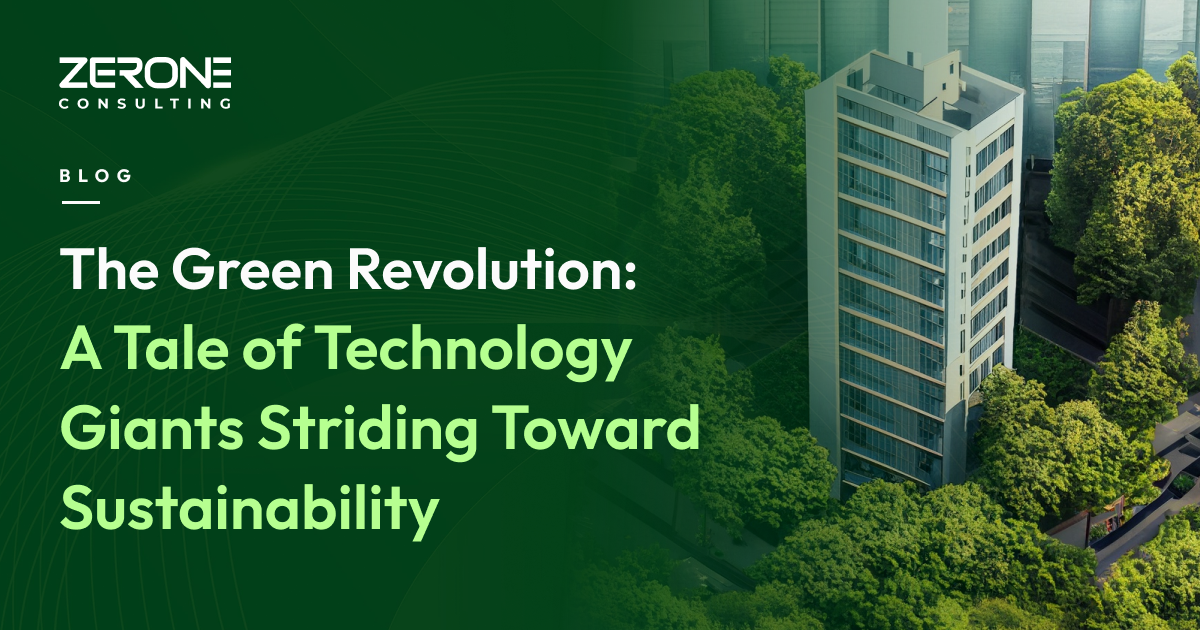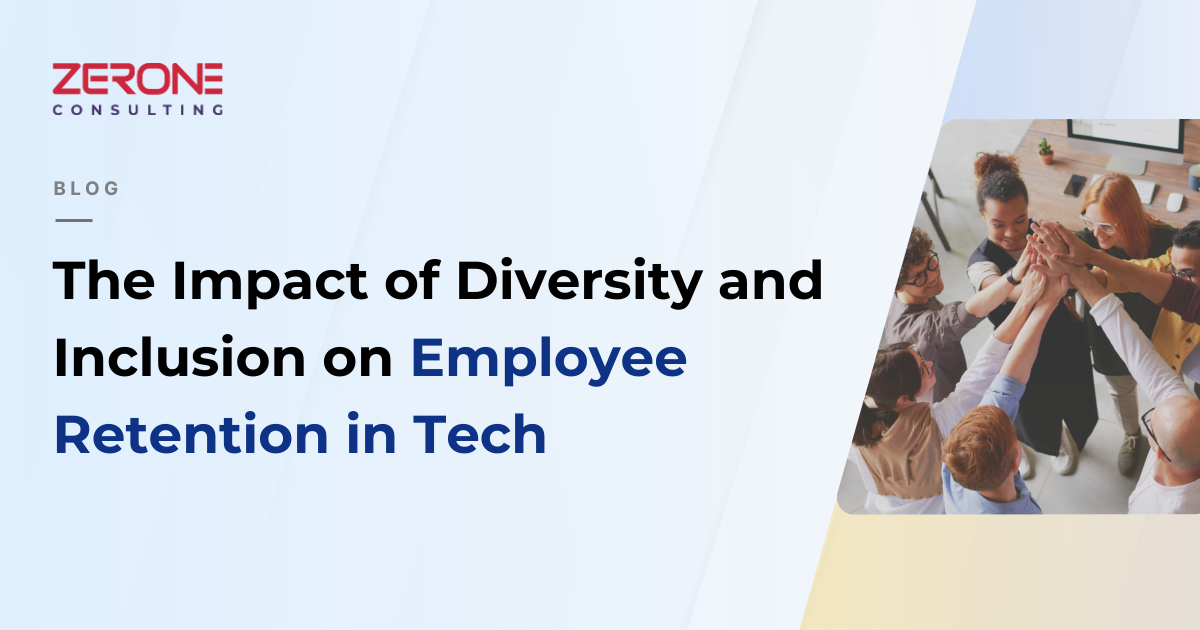How AI is driving sustainability in the tech industry
Artificial Intelligence (AI) isn't a mere computational tool anymore; it has emerged as a leading steward of environmental sustainability in the tech industry. This article aims to provide an in-depth understanding of AI's vital role in fostering green practices, curbing carbon emissions, and driving the circular economy. We will delve into a wealth of hard facts, groundbreaking case studies, and data-driven insights to demonstrate how AI catalyzes a more sustainable future in technology. Be ready for a journey into how AI, a critical asset of our tech repertoire, is reshaping our approach towards environmental responsibility.
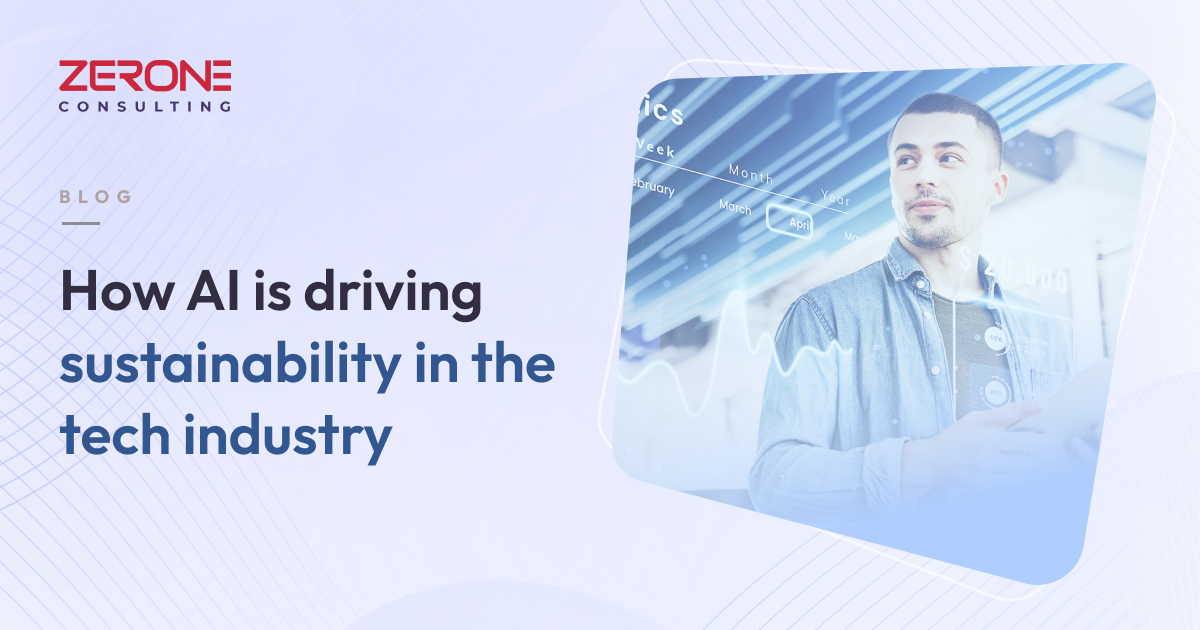
AI and Sustainability: Pioneering a New Frontier
The evolution of AI has intersected with the sustainability narrative at a critical point in our technological journey. The World Economic Forum predicts that AI could contribute 1.5% less in global greenhouse gas emissions than the 1990 levels by 2030. Furthermore, AI is estimated to provide a staggering economic value of $15.7 trillion by the same year. As such, AI has become a catalyst in driving sustainable practices in tech.
Practical AI Applications: Driving Green Innovation
The landscape of AI applications is sprawling, with a 34% increase in AI patent applications related to sustainability between 2017 and 2019, according to a report by the World Intellectual Property Organization (WIPO). These innovations are transcending the confines of sectors within the tech industry, accelerating energy efficiency, curbing e-waste, and streamlining resource optimization.
Google's DeepMind, for instance, reduced the energy used for cooling its data centers by 40%. Simultaneously, IBM's 'Green Horizon Project' leveraged AI to enhance Beijing's air quality forecast accuracy by 30%.
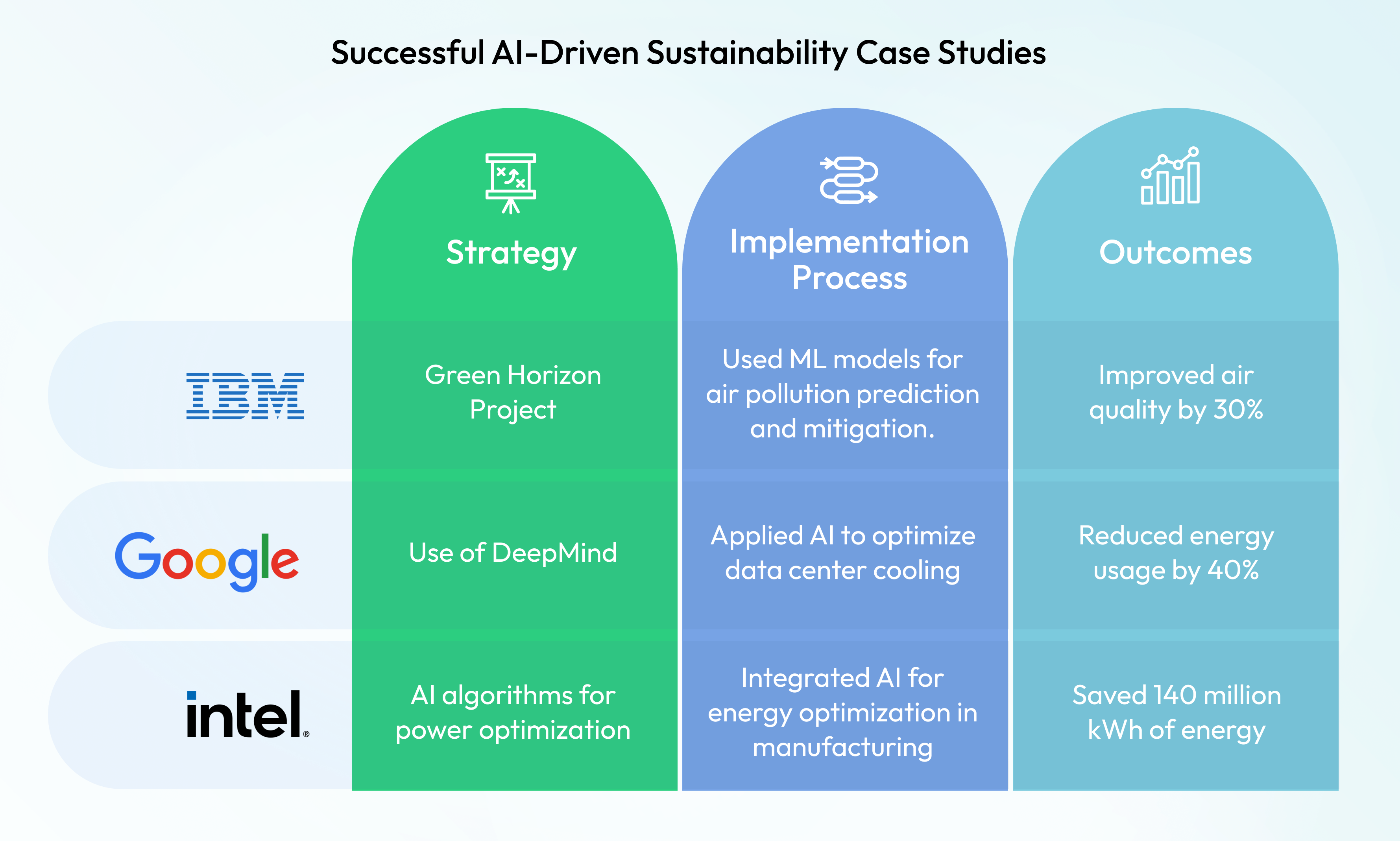
The Business Case for AI-Driven Sustainability
Accenture Strategy's report underlines the impressive ROI of AI-driven sustainable practices. The study suggests that businesses harnessing AI for sustainability can increase their profitability by up to 38%, besides generating 2.3 times the revenue of their less progressive counterparts. Tech giants like Microsoft and Amazon have reaped enormous benefits through AI-driven sustainability, gaining not just significant cost savings and efficiency enhancements but also a notable boost in their corporate reputation.
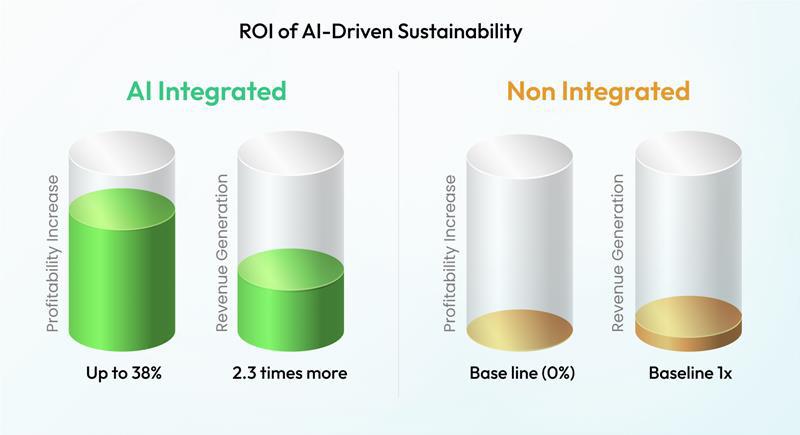
Transitioning to a Circular Economy: AI at the Helm
AI is pivotal in steering the tech industry toward a circular economy.). In this model, resources are used, recovered, and regenerated in an endless cycle.
AI's practical applications are manifold. In waste management, AI-driven high-speed sorting mechanisms enabled Apple to recycle 2.2 million pounds of electronic waste in 2019 alone. In terms of energy efficiency, Intel's AI algorithms optimized power usage across its factories, saving 140 million kilowatt-hours of energy between 2012 and 2020.
Navigating the Path: Overcoming Implementation Challenges
Despite the enormous potential, integrating AI for sustainability is not without challenges. Tech companies often grapple with ethical considerations, balancing technological advancement with environmental implications. Accenture's 'Responsible AI' strategy presents a promising model to overcome these challenges, incorporating fundamental principles such as fairness, transparency, robustness, security, and accountability.
Voices from the Future: Harnessing Emerging Technologies
AI technologies seem poised to turbocharge sustainability as we gaze into the future. AI-powered grid optimization technologies are set to revolutionize energy distribution, while AI-led predictive maintenance could significantly curtail machine downtime and waste. The future, undoubtedly, is teeming with exciting prospects for sustainable tech.
From Pioneers to Practice: Successful AI-Driven Sustainability Case Studies
The success stories of industry leaders offer compelling evidence of the transformative power of AI-driven sustainability. IBM's 'Green Horizon Project' and Google's DeepMind stand as testaments to the remarkable strides made in this arena. These pioneers offer valuable insights into innovative strategies, comprehensive implementation processes, and impressive outcomes, serving as inspiration and blueprints for other tech leaders.
A Blueprint for Action: Guiding Tech Leaders Towards Sustainability
For tech leaders keen to harness AI for sustainable practices, the first step is establishing a clear vision for AI-driven sustainability. This is followed by fostering an innovation culture, investing in AI research, and prioritizing transparency in AI usage. Crucially, navigating the complex landscape of regulations and policies surrounding AI and sustainability, and driving cultural change within organizations are essential components of this transformative journey.
Conclusion
The convergence of AI and sustainability is forging a new path for the tech industry. With its profound ability to optimize resource usage and reduce carbon footprints, AI is rapidly becoming the linchpin of sustainable tech. As tech industry leaders, the onus is now on us to embrace this revolutionary technology and strive towards a harmonious co-existence of technology and sustainability.
Key Takeaways
- AI's potential to drive sustainability is enormous, with forecasts predicting a contribution of 1.5% less in global greenhouse gas emissions than the 1990 levels by 2030.
- Practical applications of AI for sustainability have seen a significant surge, with a 34% increase in related patents between 2017 and 2019.
- Businesses leveraging AI for sustainability can improve their bottom line by up to 38%, besides generating 2.3 times the revenue of their peers.
- AI is facilitating the transition to a circular economy in tech, with substantial impacts on waste management and energy efficiency.
- The future promises further enhancements in sustainability driven by AI technologies like grid optimization and predictive maintenance.#
Recommended Resources
We can help!
The Green Revolution: A Tale Of Technology Giants Striding Toward Sustainability
#Customapplicationdevelopment
Harnessing The Power Of Diversity And Inclusion For Employee Retention In Tech
#Customapplicationdevelopment
Streamlining Software Development: From Proof Of Concept To Continuous Learning
#Customapplicationdevelopment
